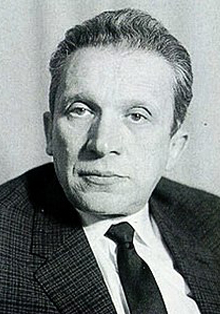Until the 24th of March, the Teatro Real offers La pasajera, by Mieczysław Weinberg (pictured), in a co-production with the Bregenz Festival, the Wielki Theatre in Warsaw and the English National Opera, co-organised with the Ministry of Culture and National Heritage of Poland and the Adam Mickiewicz Institute, with the support of the Instituto Polaco de Cultura.
The Spanish premiere of this opera – three years late due to the pandemic – can be seen as part of the surprising discovery in recent decades of Weinberg’s prolific and valuable musical output, silenced for years by the pressure of Soviet censorship and the terrible vicissitudes of his biography.
Mieczysław Weinberg was born in Warsaw in 1919 into a family of Jewish artists connected to the Yiddish theatre. His parents and sister died in the Trawniki concentration camp, from which the young musician escaped, finding refuge in the Soviet Union. There he made a living from music, pursued his education and maintained a tireless creative activity, composing in precarious situations. Marginalised, persecuted, imprisoned and constantly watched by the Soviet authorities, again because he was Jewish, his survival and career were due in large part to the support and protection of Dmitri Shostakovich (1906-1975), a great friend, admirer and disseminator of his work.
The opera, sung in seven languages, tells the story of two women on an ocean liner bound for Brazil, trying to escape from their common past in Auschwitz: one a prisoner in the service of the SS, the other a Jewish prisoner who managed to save herself.
La pasajera will be premiered in Spain with the mastery of two great specialists in Weinberg’s work: Mirga Gražinytè-Tyla, who has been performing and recording his scores for years, and David Pountney, who studied the composer’s life and work in depth in order to direct the first stage production of the opera. Tickets can be purchased at this link.







